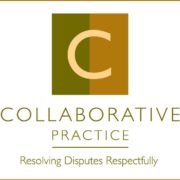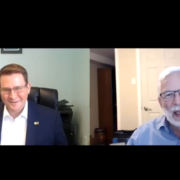Podcast: Collaborative Coach on Women Mean Really Business
Earlier this year, Melissa Sulkowski, R.N., M.A., L.P.C., of Erie, Pennsylvania, appeared on the Women Really Mean Business Podcast. Melissa is a Collaborative Coach, what we in Florida call a “Collaborative Facilitator.” She helps families who are going through the Collaborative Divorce Process remain focused on what is most important to them rather than the arguments of the past. She helps clients work on the emotional aspects of divorce and get through the tough moments so they can move on with their lives. Melissa also helps families develop parenting plans that are tailored to their children’s needs and developmental stages.
Additionally, Melissa is trained as a mediator and works with families in various forms of alternative dispute resolution. Her goal, regardless of which process is utilized, is to help families amicably reach agreements and stay outside of the adversarial court system.
You can find the audio of Melissa’s appearance on Women Really Mean Business at the following link: https://womenreallymeanbusiness.com/2019/09/melissa-sulkowski-women-really-mean-business-048-dont-let-a-crisis-force-you-into-self-care
Below is a partial transcript, edited for clarity:



 “By coming to an agreement collaboratively, both parents have input into the holiday schedule instead of having a judge telling parents what the holidays will look like,” said Susan Busby, an attorney with the Connecticut Collaborative Divorce Group (CCDG). CCDG is a Hartford-based group of professionals that aims to keep divorcing couples and their children out of court using a method of family conflict resolution called Collaborative Divorce. “In a Collaborative Divorce, the values and traditions of the parents and the children can be honored and not used as leverage between the parents to get something else, which can happen in traditionally litigated divorces. Working out the holiday plan together is better for the children and for parents. Then everyone can relax and enjoy the holidays.”
“By coming to an agreement collaboratively, both parents have input into the holiday schedule instead of having a judge telling parents what the holidays will look like,” said Susan Busby, an attorney with the Connecticut Collaborative Divorce Group (CCDG). CCDG is a Hartford-based group of professionals that aims to keep divorcing couples and their children out of court using a method of family conflict resolution called Collaborative Divorce. “In a Collaborative Divorce, the values and traditions of the parents and the children can be honored and not used as leverage between the parents to get something else, which can happen in traditionally litigated divorces. Working out the holiday plan together is better for the children and for parents. Then everyone can relax and enjoy the holidays.”







